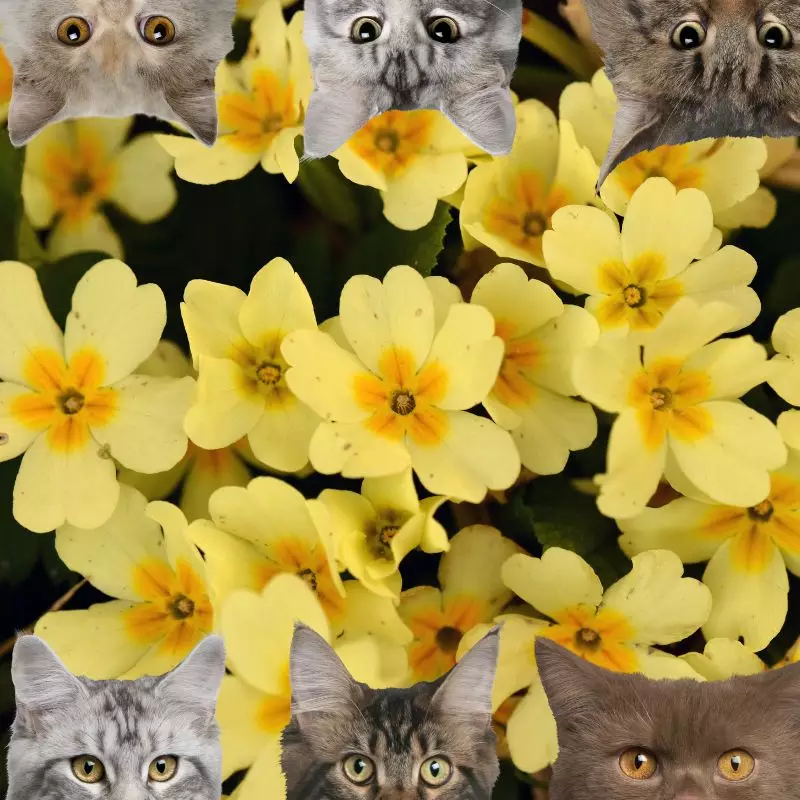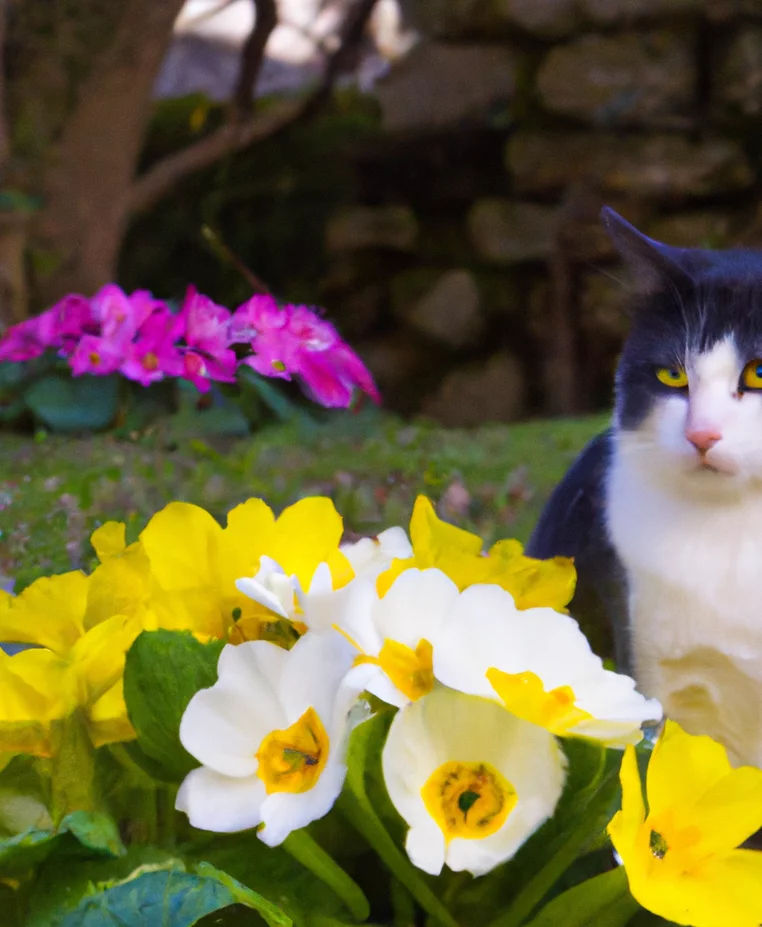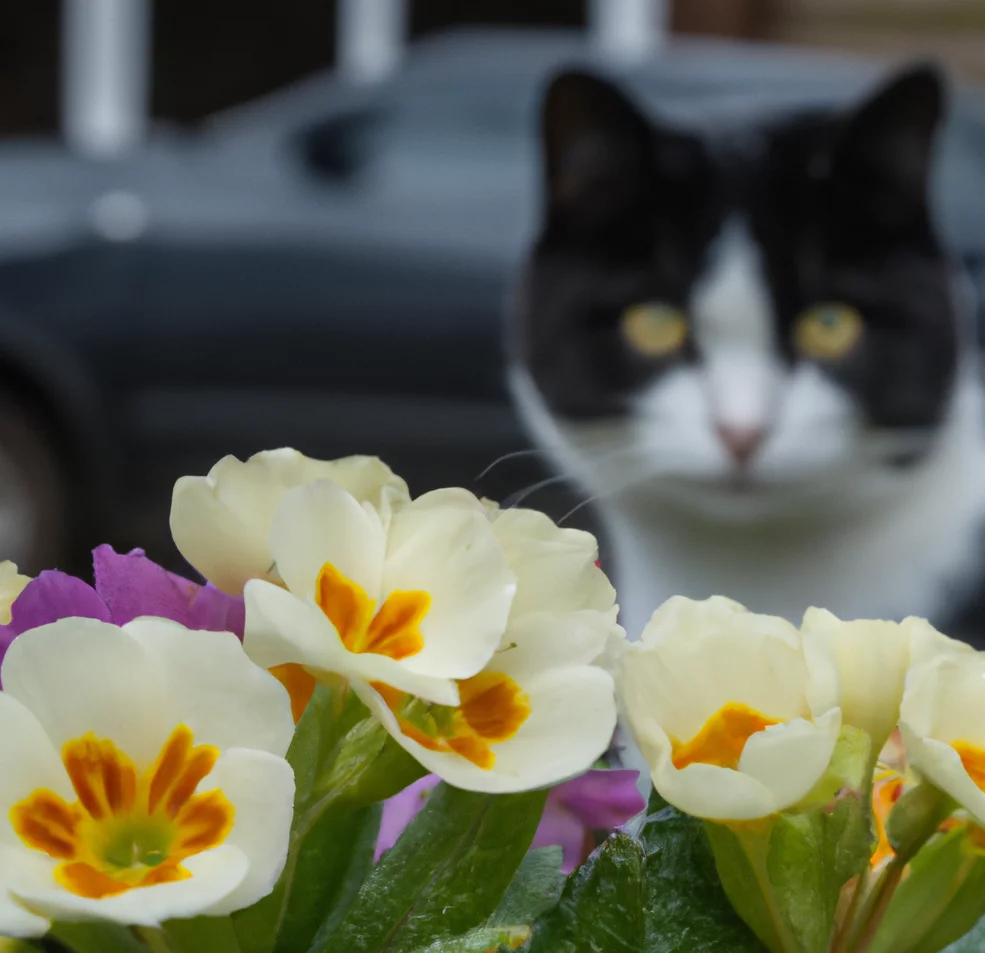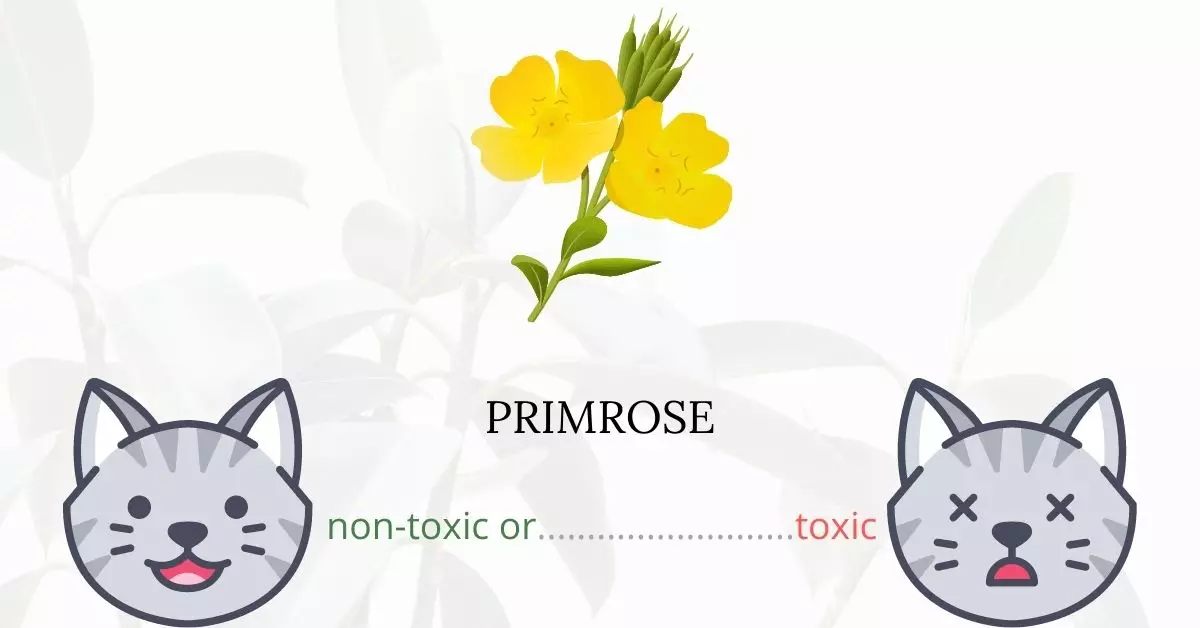Primrose indeed poses a toxicity risk to cats, as affirmed by the ASPCA Animal Poison Control Center.
This article, crafted in collaboration with a panel of seasoned Doctors of Veterinary Medicine (DVMs), offers authoritative and current insights into the potential hazards related to various plants, focusing specifically on Primrose in this instance, and their impact on cats. Our team of experts and contributors have conducted extensive research, leveraging high-authority sources such as ASPCA and PetMD to substantiate every piece of information pertaining to plant toxicity.
While the exact toxic component in Primrose remains unidentified, ingestion can typically result in mild to moderate gastrointestinal upset in cats. There is a prevailing belief among some veterinarians that having primrose in gardens is relatively safe; however, exposing your cat to this plant is discouraged due to the risk of developing poisoning symptoms. The manifestations of toxicity mainly include gastrointestinal discomfort and inflammation, but more severe complications can also develop. To ensure the safety and well-being of your feline friends, it is imperative to be cognizant of the risks associated with plants like Primrose and to take necessary precautions.
Clinical Signs of Primrose Poisoning in Cats

Should a cat ingest, contact, or even merely inhale the primrose plant, they might exhibit a series of clinical signs due to the toxic constituents of the plant, whose exact nature remains undetermined. The symptoms that may manifest primarily stem from the body’s response to the toxic elements present in the primrose plant, leading to adverse reactions in the feline body.
- Nausea: This is one of the initial signs of primrose poisoning in cats. When a cat consumes the primrose plant, it can disturb the animal’s stomach lining, resulting in a feeling of discomfort and an urge to vomit.
- Vomiting: Ingesting the primrose plant can cause irritation to the gastrointestinal tract, leading the cat to vomit as the body’s means of expelling the toxic substance.
- Diarrhea: The ingestion of the toxic component can disturb the cat’s digestive system, leading to frequent, loose, or watery stools as the body attempts to eliminate the toxins.
- Contact Dermatitis: Even mere skin contact with the primrose plant may lead to this condition. It occurs when the irritants in the plant come in contact with the cat’s skin, causing inflammation, redness, and itchiness.
- Eye Irritation: Exposure to the plant can also affect the cat’s eyes. The irritants in the primrose plant can cause discomfort, redness, and watering of the eyes when they come into contact with the eye surface.
- Inflammation of the Gastrointestinal System: This is a more severe symptom occurring due to the ingestion of the primrose, characterized by swelling and irritation of the stomach and intestines, potentially leading to discomfort, pain, and other digestive issues.
Understanding these clinical signs is crucial for early detection and intervention in cases of primrose poisoning, allowing for timely and appropriate medical care to mitigate the adverse effects and discomfort experienced by the cat.
First Aid and Treatment of Primrose Poisoning in Cats

If your cat consumes even a small bite of any section of primrose, get veterinary assistance for her as soon as possible. If your cat isn’t vomiting already, the veterinarian may force it to do so in order to cleanse the stomach of any lingering plant matter.
If your cat is having a skin or eye reaction, flushing the affected area will assist. The vet may also apply a topical medicine to the affected area to avoid additional harm.
A medication will be prescribed to protect the gastrointestinal system’s lining and reduce any inflammation that may be present.
Recovery from Primrose Poisoning in Cats

Primrose poisoning in cats has a high likelihood of making a full recovery. If your cat had any health problems before ingesting primrose, his prospects of making a full recovery are slim. However, if you get competent veterinarian care for your cat in a timely way, the prognosis is favorable.
Prevention of Primrose Poisoning in Cats
If you have a primrose plant in your garden or house, make sure it is out of reach of your pet. If you can’t avoid it, teach your pet not to chew on or consume greenery. If your cat continues to eat the primrose plant and suffers as a result, you may need to remove this lovely flower from your garden to keep him safe.
If you love plants but have cats at home, check out these lists:





